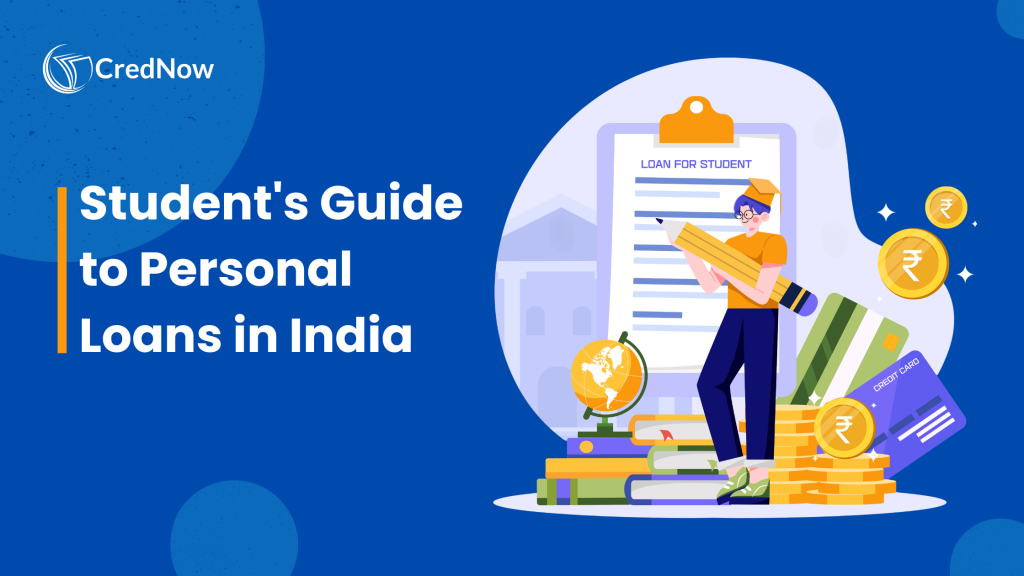Navigating the financial landscape as a student in India presents unique challenges, particularly for those without a job. While financial stability is crucial for covering education expenses, living costs, and personal needs, limited resources can often lead to stress and uncertainty. However, personal loans can offer a lifeline, providing the funds necessary to cover various expenses. This guide aims to shed light on these financial solutions, empowering you to make informed decisions that can alleviate financial pressure and allow you to focus on your studies. By exploring these options, you’ll be better equipped to manage your finances effectively, ensuring that lack of employment doesn’t hinder your educational journey or personal growth.
Why students need personal loans
Students may need personal loans for several reasons, including:
- Tuition Fees: Covering the cost of education can be expensive, and a personal loan can help bridge the gap.
- Living Expenses: Accommodation, food, and transportation are essential yet costly aspects of student life.
- Study Materials: Books, laptops, and other study materials are necessary but can add up quickly.
- Emergency Funds: Unexpected expenses can arise, and having a financial cushion is vital.
Personal loan options for students with no job
There are several personal loan options for students with no job in India. These loans can come from banks, non-banking financial companies (NBFCs), or other financial institutions.
1. Education Loans
While primarily designed to cover educational expenses, education loans can sometimes be flexible enough to cover living costs and other needs.
- Eligibility: Generally requires admission to a recognized institution.
- Collateral: May or may not require collateral, depending on the loan amount.
- Co-signer: Often requires a co-signer, such as a parent or guardian.
- Repayment: Usually starts after course completion, often with a grace period.
2. Personal Loans with a Co-applicant
If you don’t have a job, applying for a personal loan with a co-applicant can increase your chances of approval. The co-applicant, typically a parent or guardian, must have a stable income and good credit history.
- Eligibility: Relies on the co-applicant’s creditworthiness.
- Collateral: May not require collateral for smaller amounts.
- Repayment: Shared responsibility between the applicant and co-applicant.
3. Loans from NBFCs
Non-banking financial companies (NBFCs) often have more relaxed criteria compared to traditional banks. They might offer personal loans to students with flexible terms.
- Eligibility: May consider factors other than employment, such as academic performance.
- Collateral: Usually do not require collateral for small loans.
- Repayment: Can offer flexible repayment options tailored to students.
4. Peer-to-Peer Lending
Peer-to-peer (P2P) lending platforms connect borrowers directly with lenders. These platforms can be a viable option for students who need personal loans.
- Eligibility: Depends on the platform’s criteria, which can be more lenient than banks.
- Collateral: Generally not required.
- Repayment: Terms vary by platform, often offering flexible repayment schedules.
Unlock your financial potential with CredNow!
Tips for securing a personal loan for students without employment
Securing a personal loan as a student without a job requires careful planning and consideration. Here are some tips to improve your chances:
1. Maintain a Good Academic Record
Some lenders consider academic performance as a criterion. A good academic record can demonstrate your commitment and potential, making lenders more willing to offer you a loan.
2. Get a Co-signer
Having a co-signer with a stable income and good credit history can significantly increase your chances of loan approval. Ensure your co-signer understands their responsibilities and is willing to support you.
3. Choose the Right Lender
Research various lenders, including banks, NBFCs, and P2P platforms. Compare interest rates, eligibility criteria, and repayment terms to find the best option for your needs.
4. Prepare a Solid Loan Application
A well-prepared loan application can make a difference. Include all necessary documents, such as admission proof, academic records, and any financial statements. Clearly explain why you need the loan and how you plan to use the funds.
Related Read: Essential things to know before applying for a Personal Loan
Repayment strategies
Repaying a personal loan is a crucial aspect of maintaining good financial health. Here are some strategies:
1. Plan Your Budget
Create a budget that includes all your expenses and income sources. Allocate funds for loan repayment and stick to your plan.
2. Consider Part-time Work
If possible, consider taking up part-time work to earn additional income. This can help you manage your expenses and repay your loan faster.
3. Use Grace Periods Wisely
If your loan offers a grace period, use it to save money or find employment after graduation. Start repaying as soon as possible to reduce the interest burden.
4. Stay in Contact with Your Lender
Maintain open communication with your lender. If you face difficulties in repayment, discuss alternative options or restructuring your loan.
Conclusion
Understanding personal loan options for students with no job in India is crucial for managing your finances effectively. By exploring various loan types, maintaining a good academic record, securing a co-signer, and choosing the right lender, you can access the funds you need to support your education and living expenses.
Remember, taking a personal loan is a significant responsibility. Plan your repayment strategy carefully and prioritize your financial health to ensure a stress-free and successful academic journey.
FAQs
1. Can students without a job qualify for personal loans in India?
Yes, students without a job can qualify for personal loans in India. Various options such as education loans, loans with a co-applicant, and loans from NBFCs (Non-Banking Financial Companies) are available. These loans often consider factors like academic performance, the presence of a co-signer, and the reputation of the educational institution.
2. What are the typical eligibility criteria for personal loans for students with no job?
Eligibility criteria can vary by lender, but generally include:
- Admission to a recognized educational institution
- A co-signer or guarantor with a stable income and good credit history
- Satisfactory academic performance
- Meeting the minimum age requirement set by the lender It’s important to check the specific requirements of each lender or loan scheme.
3. What documents are required to apply for a personal loan as a student without a job?
The required documents typically include:
- Identity proof (e.g., Aadhaar card, PAN card)
- Address proof (e.g., utility bill, rental agreement)
- Admission letter or enrollment confirmation from the educational institution
- Academic records
- Bank statements of the co-signer or guarantor
- Income proof of the co-signer or guarantor
- Passport-sized photographs Each lender may have additional specific documentation requirements.
4. Are there any government schemes that provide personal loans for students with no job?
Yes, several government schemes aim to support students with their financial needs. The Pradhan Mantri Vidya Lakshmi Karyakram (PMVLK) is a notable initiative that provides an online portal for students to apply for education loans and scholarships. Other schemes, like the MUDRA loan for small businesses, may also be indirectly beneficial if students are looking to start small ventures alongside their studies.
5. What are the advantages of securing a personal loan as a student with no job?
Securing a personal loan as a student with no job offers several advantages:
- Financial Support: Helps cover tuition fees, living expenses, and other educational costs.
- Flexible Repayment Options: Many lenders offer flexible repayment terms, often starting after the completion of the course.
- Building Credit History: Successfully managing and repaying a loan can help build a positive credit history.
- Focus on Studies: Reduces financial stress, allowing students to focus more on their academic performance.
- Emergency Funds: Provides a financial cushion for unexpected expenses or emergencies.



